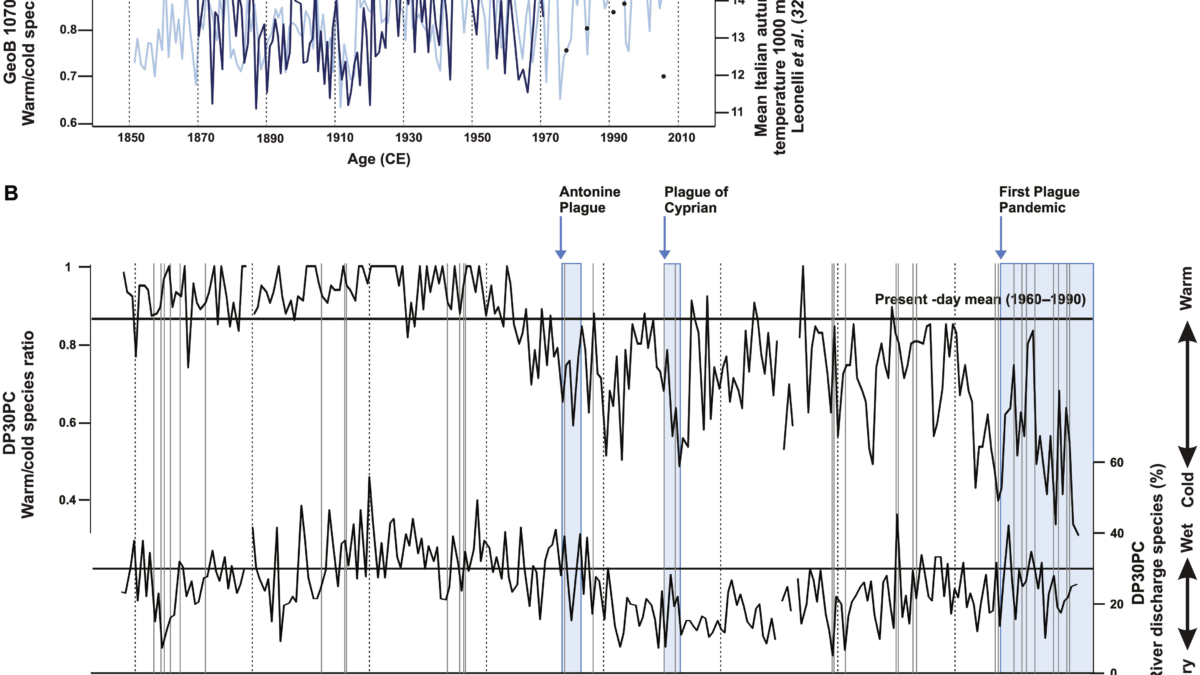June 2019: Earth’s hottest June on record and greatest June heat wave in European history
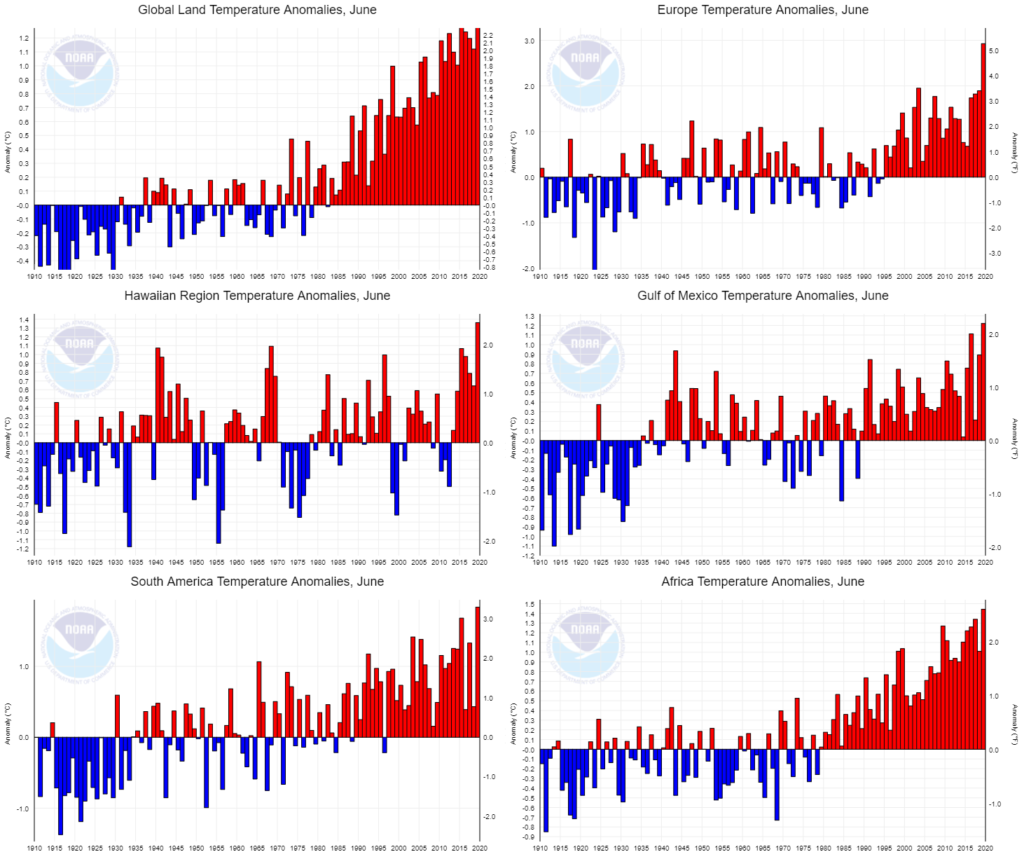
By Dr. Jeff Masters
18 July 2019
(Weather Underground) – June 2019 was the planet’s warmest June since record keeping began in 1880, said NOAA’s National Centers for Environmental Information (NCEI) on Tuesday. NASA also rated June 2019 as the warmest June on record, well of ahead of the previous record set in 2015.
The global heat in June is especially impressive and significant given that only a weak (and weakening) El Niño event was in place. As human-produced greenhouse gases continue to heat up our planet, most global heat records are set during El Niño periods, because the warm waters that spread upward and eastward across the surface of the tropical Pacific during El Niño transfer heat from the ocean to the atmosphere.
Global ocean temperatures during June 2019 were tied with 2016 for warmest on record, according to NOAA, and global land temperatures were the warmest on record. Global satellite-measured temperatures in June 2019 for the lowest 8 km of the atmosphere were the warmest or second warmest in the 41-year record, according to RSS and the University of Alabama Huntsville (UAH), respectively.
As of July 15, July 2019 was on track to be the warmest month in Earth’s history (in absolute terms, not in terms of temperature departure from average)–just ahead of the record set in July 2017. […]
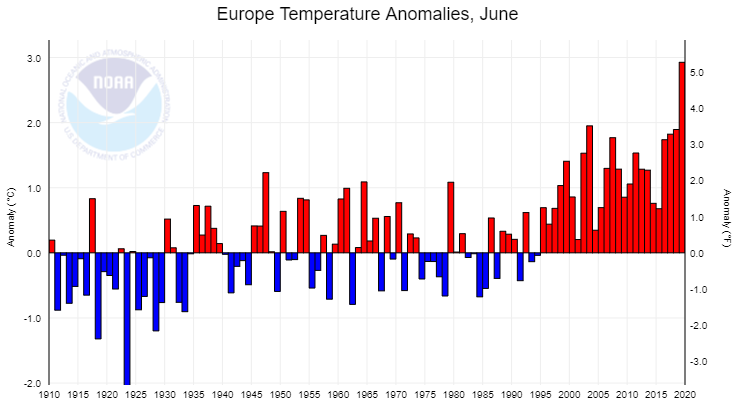
Greatest June heat wave in European history
26–30 June 2019 brought the greatest June heat wave in European history. Hundreds of stations with a long-term period of record (POR) set their all-time June maximum temperature records, and all-time heat records for any month were set in two nations—France, and Andorra. In addition, all-time heat records fell at 84 stations with long-term PORs in eleven nations—Germany, France, Switzerland, Austria, Poland, Italy, Liechtenstein, Andorra, Spain, Denmark, and the Czech Republic.
A rapid-response climate change attribution study done on the heat wave by scientists with the World Weather Attribution website found that for France, human-caused climate change made the heat wave at least five times more likely to occur, with observations indicating that climate change might have made the heat wave more than 100 times more likely to occur. One of the scientists involved said, “We could however not say more from models and observations because (i) it is so extreme that statistics reach their limits and (ii) models are not accurate enough.” World Weather Atrribution is an international effort by leading climate scientists to analyze and report on climate-change-related aspects of major weather events on a time scale of weeks to months, while the events are still fresh in mind. By design, such reports are preliminary, but they are conducted by the same scientists who carry out more comprehensive published peer-reviewed studies, using many of the same tools. […]
June Arctic sea ice extent the second lowest on record
Arctic sea ice extent during June 2019 was the second lowest in the 40-year satellite record, behind the record set in June 2016, according to the National Snow and Ice Data Center (NSIDC). Fair weather, high pressure and clear skies dominated much of the Arctic in June. Persistent high pressure over the North American side of the Arctic, combined with low pressure over the Eurasian side, drew in warm air from the south into the Arctic. This circulation pattern resembled the Arctic Dipole pattern that is known to favor summer sea ice loss. This pattern was particularly well developed through the summer of 2007, leading to the second-lowest Arctic sea ice extent on record.
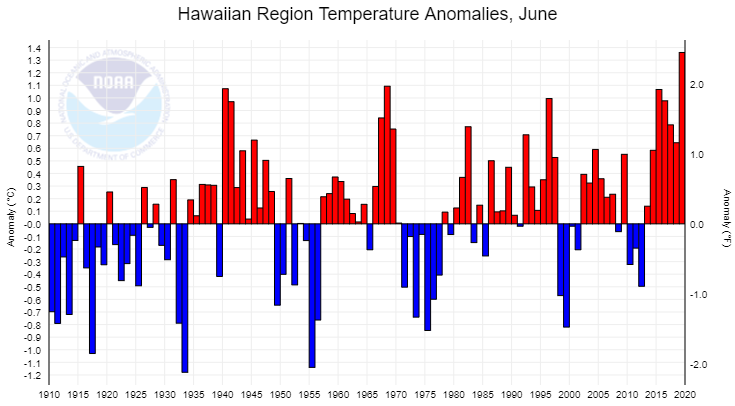
During the first half of July 2019, Arctic sea ice extent was near or below the record-low levels observed during the summer of 2012—the year that ended up with the lowest sea ice extent on record. Record-low values were still in place as of July 17. With low pressure and cloudier skies predicted to dominate the Arctic during the coming week, though, 2012 may once again be the record-holder for lowest Arctic sea ice extent by the beginning of August. In their July 16 update, NSIDC said, “projections suggest that a new record low extent is unlikely this year.”
Antarctic sea ice extent during June 2019 was the lowest in the 40-year satellite record, surpassing 2002 and 2017. [more]
June 2019: Earth’s Hottest June on Record
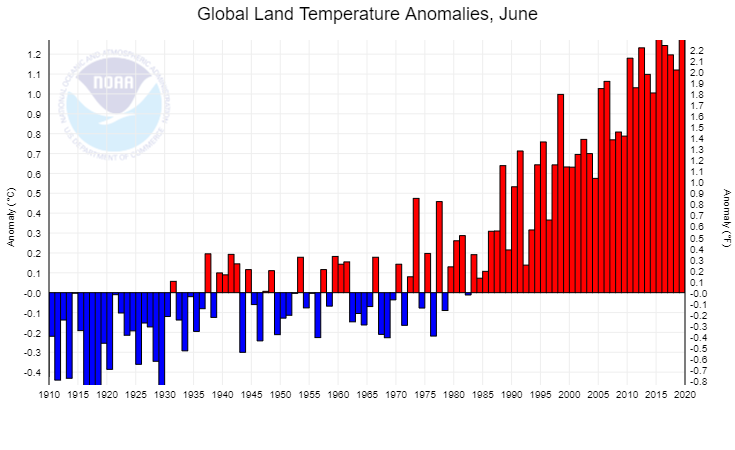
Global Climate Report – June 2019
18 July 2019 (NOAA) – The month of June was characterized by warmer-than-average temperatures across much of the world. The most notable warm June 2019 temperature departures from average were observed across central and eastern Europe, northern Russia, northeastern Canada, and southern parts of South America, where temperatures were 2.0°C (3.6°F) above the 1981–2010 average or higher. Record warm temperature departures from average during June 2019 were present across parts of central and eastern Europe, Asia, Africa, South America, the north Indian Ocean, and across parts of the Pacific and Atlantic oceans. […]
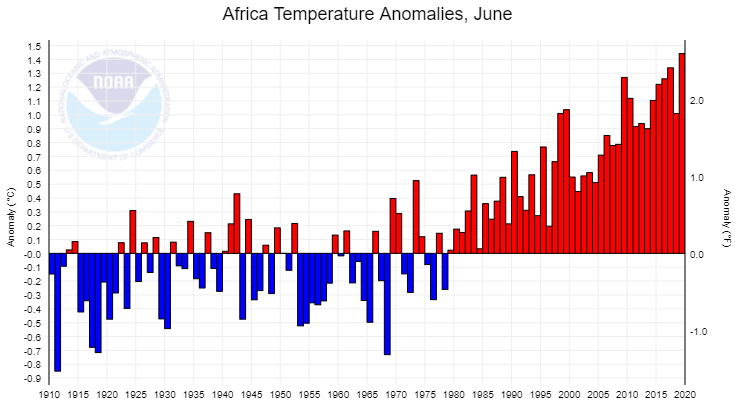
Averaged as a whole, the June 2019 global land and ocean temperature departure from average was the highest for June since global records began in 1880 at +0.95°C (+1.71°F). This value bested the previous record set in 2016 by 0.02°C (0.04°F). Nine of the 10 warmest Junes have occurred since 2010. June 1998 is the only value from the previous century among the 10 warmest Junes on record, and it is currently ranked as the eighth warmest June on record. Junes 2015, 2016, and 2019 are the only Junes that have a global land and ocean temperature departure from average above +0.90°C (+1.62°F). June 2019 also marks the 43rd consecutive June and the 414th consecutive month with temperatures, at least nominally, above the 20th century average.
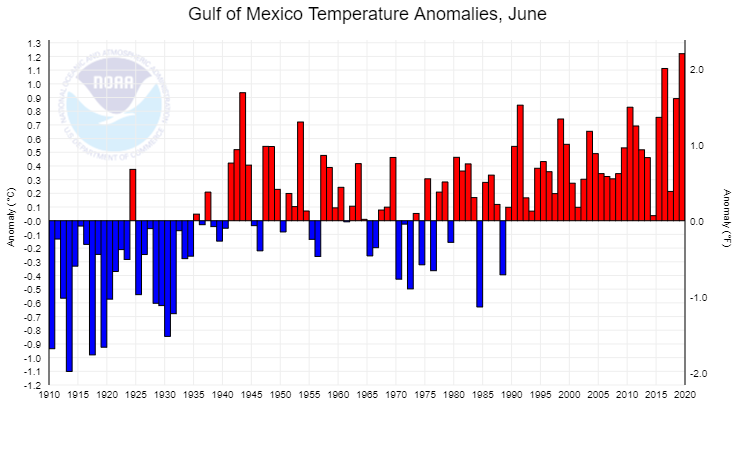
The global land-only surface temperature for June 2019 was 1.34°C (2.41°F) above the 20th century average. This was also the highest June temperature in the 140-year record, exceeding the previous record of +1.30°C (+2.34°F) set in 2015. According to NCEI’s Regional Analysis, South America, Europe, Africa, the Hawaiian Region, and the Gulf of Mexico had their warmest June since regional records began in 1910. Asia and the Caribbean region had their eighth and ninth highest June temperature in the 110-year regional record, respectively. Meanwhile, North America and Oceania had their coolest (or least warm) June since 2009 and 2012, respectively.
The global ocean-only temperature for June 2019 tied with 2016 as the highest June temperature on record at 0.81°C (1.46°F) above average. Junes 2016 and 2019 are the only June global ocean-only temperature departures from average that have surpassed +0.80°C (+1.44°F). June 2019 tied with August 2015, April 2016, and June 2016 as the 10th highest monthly global ocean temperature departure from average among all months (1,674 months) on record. The 10 highest global ocean monthly temperature departures from average have all occurred since September 2015.
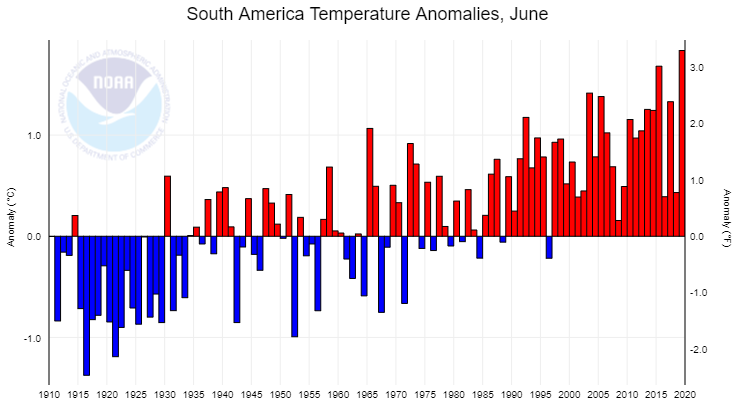
Select national information is highlighted below. Please note that different countries report anomalies with respect to different base periods. The information provided here is based directly upon these data:
- Europe had its warmest June on record at 2.93°C (5.27°F) above the 1910–2000 average, surpassing the previous record of 1.95°C (3.51°F) set in 2003 by +0.98°C (+1.76°F). June 2019 also marked the first time since continental records began in 1910 that Europe’s June temperature departure from average surpassed the +2.0°C (+3.6°F) mark and nearly reaching +3.0°C (+5.4°F). Compared to all months, the June 2019 temperature departure from average tied with March 2017 as the 12th highest in the 1,314 monthly record. During the last week of June, an intense heat wave affected much of Europe, bringing temperatures that were 6.0°–10.0°C (10.8°–18.0°F) above average and resulting in numerous new records set. […]
- The Kingdom of Bahrain’s June 2019 mean temperature of 36.3°C (97.3°F) was 3.9°C (7.0°F) above average and was the warmest June since national records began in 1902. This value beat the previous record of 35.7°C (96.3°F) set in 2018 by 0.6°C (1.1°F). The nation’s maximum and minimum temperature were record and near-record warm for the month. According to the nation’s Ministry of Transportation and Telecommunications, Bahrain had 20 days with maximum temperatures above 40.0°C (104.0°F), setting a new record. The previous record was 17 days set in 2006 and again in 2009. […]
- Hong Kong had its warmest January–June period on record for mean, maximum, and minimum temperatures. [more]

